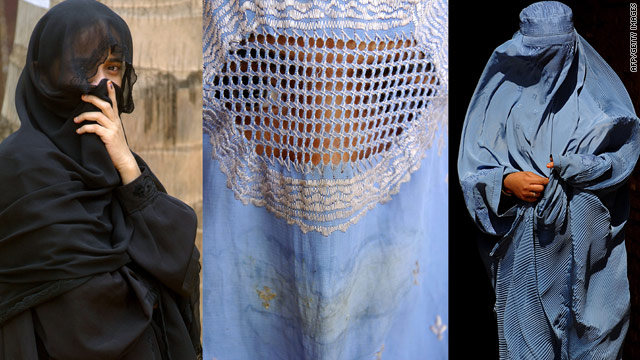By Yoohwan Kim
Impunity Watch Reporter, Europe
Photo: Relatives gathered to mourn the deaths of their husbands and sons, victims of the 1995 Srebrenica Massacre. [Source: AP]
SREBRENICA, Bosnia-Herzegovina – On Sunday, July 11, more than 50,000 people gathered for a ceremony at the Potocari cemetery near Srebrenica, Bosnia-Herzegovina to commemorate the 15th anniversary of one of the worst atrocities in Europe, when Bosnian Serb paramilitaries executed nearly 8,000 Bosniak (Bosnian Muslim) men and boys.
Relatives of the victims, religious leaders, and foreign dignitaries were among those who gathered at the Centre Potocari, the official Srebrenica Massacre Memorial where 3,749 victims are already buried. The 64 minute memorial ceremony included the burial of 775 recently identified victims, who were laid in coffins draped in green cloth and were carried by relatives for at least a mile.
The Srebrenica Massacre Memorial was built in 2003 across the road from the former U.N. military base where about 30,000 Bosniaks gathered in 1995 to seek refuge during the Serbian-Bosnian conflict. On July 11, 1995, a few days after the fall of Srebrenica to Bosnian Serb troops, Bosnian-Serb General Ratko Mladic led forces that overran the UN-protected enclave, and separated out Bosniak men and boys.
The men and boys were taken away, shot, and buried in mass graves during the course of five days. Several months following the massacre, the Serb troops excavated the original mass graves and reburied the victims in over 70 other sites in an attempt to cover up any evidence of war crimes.
The Srebrenica Massacre is the only episode of Bosnia’s 1992-1995 war that has been ruled as genocide by the International Criminal Tribunal for the former Yugoslavia and the International Court of Justice.
In 2009, the European Parliament declared the massacre “the biggest war crime in Europe since the end of World War II” and “a symbol of the international community’s impotence to intervene and protect civilians.”
July 11 is now marked all across Europe as a day of commemoration in honor of the victims, and all Western Balkan countries, except for Bosnia, have adopted resolutions that condemn the massacre.
Several foreign officials addressed the crowd on Sunday and spoke against the atrocity that occurred 15 years ago. “We have a sacred duty to remember the cruelty that occurred here and to prevent such atrocities from happening again,” stated Charles L. English, U.S. Ambassador to Bosnia, during Sunday’s ceremony. “We have responsibility to future generations all over the globe to agree that we must refuse to be bystanders to evil whenever and wherever it occurs. We must be prepared to stand up for human dignity.”
The U.S. delegation also read a statement from President Obama, in which President Obama calls on all governments to “redouble their efforts” to find and prosecute those responsible for the massacre, particularly key suspect Ratko Mladic.
President Obama stated, “Justice must include a full accounting of the crimes that occurred, full identification and return of all those who were lost, and prosecution and punishment of those who carried out the genocide. This includes Ratko Mladic, who presided over the killings and remains at large.”
On June 16, the family of Ratko Mladic filed a motion in a Serbian court to officially declare Mladic dead. The family asserts that they have not seen him in seven years and that Mladic was seriously ill when he disappeared 15 years ago.
Despite the motion, Serbian authorities say they will continue to search for Mladic, who is not only responsible for the Srebrenica Massacre, but also for the 44 month siege of Sarajevo that left 10,000 people dead. Mladic still remains a fugitive and is believed to be hiding in Serbia.
For more information, please see:
CNN – World Leaders Mark 15th Anniversary of Srebrenica Massacre – 12 July 2010
AFP – Obama Urges Mladic Capture on Srebrenica Anniversary – 11 July 2010
AP – 775 Coffins: Bosnia Marks 1995 Srebrenica Massacre – 11 July 2010
BALKAN INVESTIGATE REPORTING NETWORK – Thousands Converge on Srebrenica to Commemorate Massacre Anniversary – 11 July 2010
RADIO FREE EUROPE/RADIO LIBERTY – Srebrenica Massacre Remembered on 15th Anniversary – 11 July 2010
VOICE OF AMERICA – Thousands Mourn Srebrenica Massacre Victims, Criticize UN – 11 July 2010
VOICE OF AMERICA – Mladic’s Family Asks Serbian Court to Declare Him Dead – 16 June 2010

 BRUSSELS, Belgium – As part of a government probe into allegations of child abuse by priests, Belgian police questioned Cardinal Godfried Danneels for about ten hours on Tuesday over whether he knew of sexual abuse in the church and failed to stop it. Several men and boys have alleged that they had told Danneels about the abuse of children by Roman Catholic priests but that their complaints had fallen on deaf ears. Danneels, a 77 year old cardinal, led the Catholic Church in Belgium until his retirement last year. The Agence France Presse reported that a retired priest has accused him of sheltering abusive priests during his tenure from 1979 to 2009.
BRUSSELS, Belgium – As part of a government probe into allegations of child abuse by priests, Belgian police questioned Cardinal Godfried Danneels for about ten hours on Tuesday over whether he knew of sexual abuse in the church and failed to stop it. Several men and boys have alleged that they had told Danneels about the abuse of children by Roman Catholic priests but that their complaints had fallen on deaf ears. Danneels, a 77 year old cardinal, led the Catholic Church in Belgium until his retirement last year. The Agence France Presse reported that a retired priest has accused him of sheltering abusive priests during his tenure from 1979 to 2009.


 Photo: All EU member states do not allow same sex marriages. [Source: Justout.com]
Photo: All EU member states do not allow same sex marriages. [Source: Justout.com]